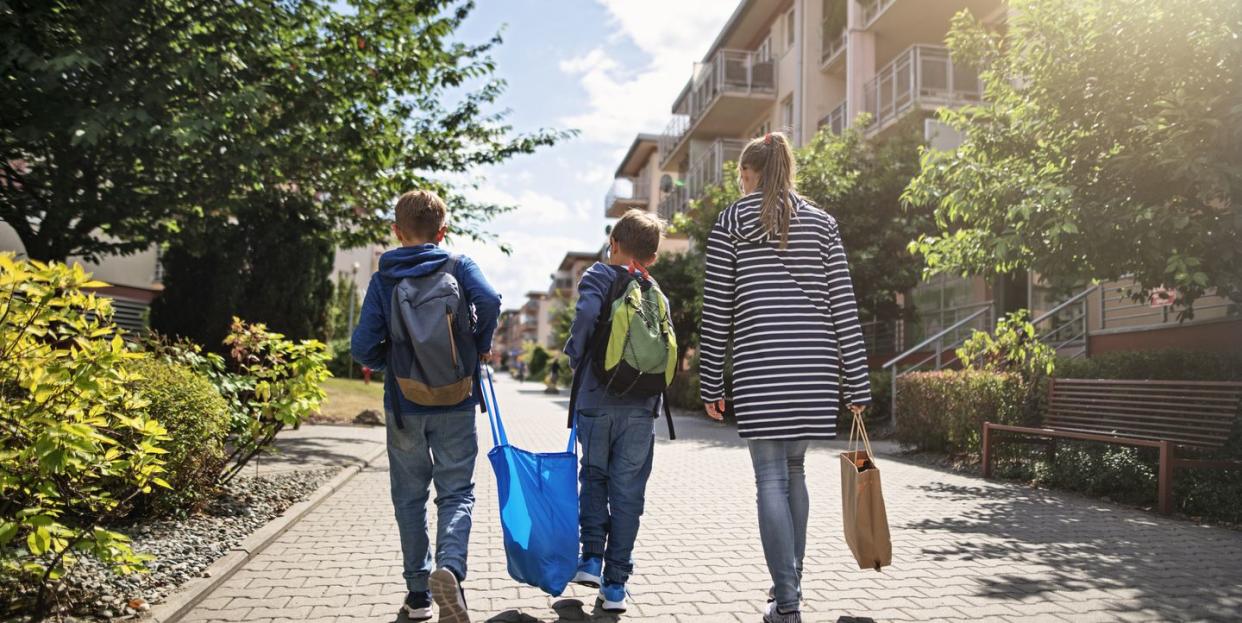Yes, You Can Still Go to The Grocery Store Under "Shelter in Place"

Around the world, communities are practicing social distancing—keeping away from other humans as much as possible—in order to prevent the further spread of COVID-19. The pandemic has to the implementation of work-from-home policies for many corporations, distance-learning policies for schoolchildren, and closures of countless businesses where crowds often gather, from museums to restaurants. But for some places, social distancing isn’t enough. Seven counties in California’s Bay Area have instituted “shelter-in-place” policies, with other major metropolises, including New York, considering following suit. But what does "shelter in place" actually mean?
People who live under a shelter-in-place order should remain at home as much as possible. "In such a case it may be safer for you to stay indoors than to go outside," states the CDC. “'Shelter in place' means to make a shelter out of the place you are in."
During a Shelter-in-Place order, however, there some essential activities are allowed for the general public, as well as for people working in essential industries.
The term “essential” is key here. Essential activities include shopping for necessary supplies like groceries, medicine, and yes, toilet paper; medical appointments; caring for family, friends, or neighbors who need assistance; and even exercising outdoors—as long as you maintain a distance of at least six feet from another human. Essential businesses that can remain open are medical facilities and offices, banks, grocery stores, hardware stores, laundromats, public transportation, banks, and utilities like electricity and Internet, construction, and garbage disposal, among others. Beyond that, some government workers are also expected to continue fulfilling their duties.
It’s important to note that a shelter-in-place order is not martial law, nor is it the same as an official quarantine. A quarantine, per federal policy, “separates and restricts the movement of people who were exposed to a contagious disease to see if they become sick.” In short, that means you’re legally required to stay put so as not to risk spreading the disease, and you can actually be imprisoned or fined if you break a quarantine. Sheltering in place, however, is more of a suggestion and a guideline than an actual law—you won’t legally be in any trouble if you leave your home for a non-essential reason. (But take note if your local official says otherwise!) That said, the guidelines are in place for a reason, and you should adhere to them in order to protect vulnerable individuals—i.e., the elderly and the immunocompromised—and help end the pandemic. We're all in this together.
For more information, see San Francisco's official order here and San Mateo's FAQs here.
Follow House Beautiful on Instagram.
You Might Also Like

